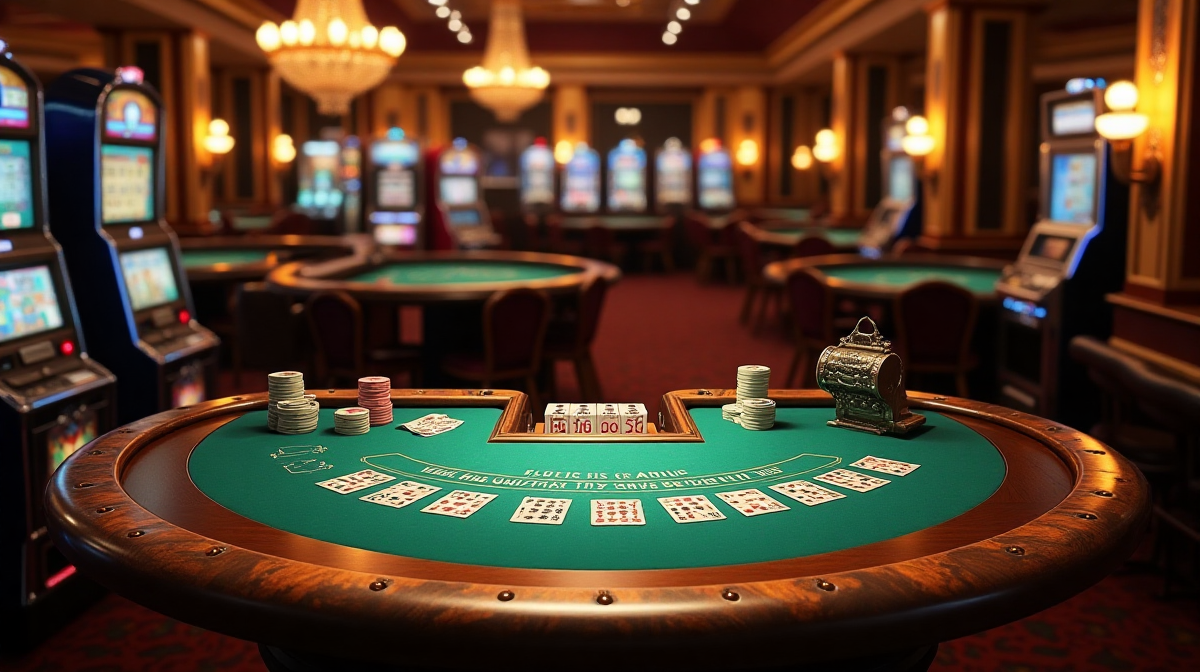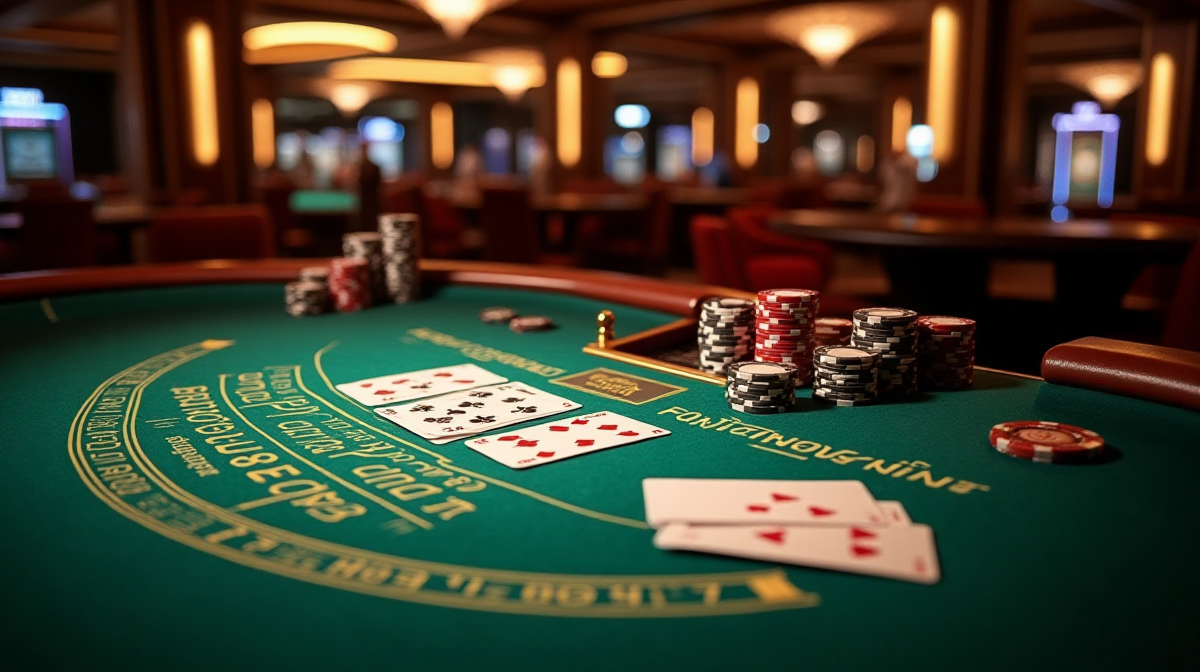Blackjack Game: Beginner's Guide & Strategy
What is Blackjack? – A Brief Overview
Blackjack, also known as 21, is one of the most popular casino games worldwide. It's a comparing card game between a player and a dealer, meaning players compete against the dealer rather than other players. The objective is to have a hand value closer to 21 than the dealer, without exceeding it. A strong strategy and a bit of luck are key to success. Many players are also interested in exploring opportunities like a turkey bet to potentially boost their winnings.
History of Blackjack – Origins and Evolution
The origins of Blackjack can be traced back to 18th-century France, where a similar game called Vingt-et-Un (twenty-one) was popular. It arrived in the United States in the early 19th century and evolved into the game we know today. The addition of a bonus payout for certain hands (a Blackjack – an Ace and a ten-value card) in the 1930s cemented its name and popularity. Today, finding reliable turkey bet tips is crucial for some players looking to add an extra layer of excitement.
Blackjack Terminology – Understanding the Lingo
To fully enjoy and understand the game, you need to know the lingo. Hit means to ask for another card. Stand means to keep your current hand. Bust means to exceed 21, resulting in an automatic loss. Double Down allows you to double your bet and receive only one more card. Split allows you to separate a pair into two separate hands. “Surrender”, if offered, allows you to forfeit your hand and recover half your bet.
The Goal of the Game – How to Win
The primary goal of the blackjack game is to beat the dealer’s hand without going over 21. You win if your hand is higher than the dealer’s, the dealer busts, or you have a Blackjack when the dealer doesn’t. Understanding the nuances of the game, and even considering potential strategies related to a turkey bet, can significantly improve your chances.
The Deck – Standard Deck and Number of Decks Used
Blackjack is typically played with a standard 52-card deck. However, most casinos use multiple decks (often 6 or 8) shuffled together to make card counting more difficult. This impacts the probabilities and requires adjusting your strategy.
Card Values – How Cards are Scored
Number cards (2-10) are worth their face value. Jack, Queen, and King are each worth 10. The Ace can be worth either 1 or 11, depending on which value benefits the hand more.
Dealing the Cards – Step-by-Step Process
The dealer deals two cards face up to each player and two cards to themselves – one face up and one face down. Players then take turns making their decisions based on their hand and the dealer’s upcard.
Player Options – Hit, Stand, Double Down, Split, Surrender
Players have several options on their turn. You can Hit to receive another card, Stand to keep your hand, Double Down to double your bet and receive one more card, Split if you have a pair, or Surrender if the casino allows.
Dealer Rules – Dealer’s Obligations and Restrictions
The dealer has strict rules to follow. Typically, the dealer must hit until their hand totals 17 or more. They must also stand on 17 or higher. These rules are crucial to understand when formulating your strategy.
Blackjack Payouts – Winning Amounts and Side Bets
A winning Blackjack hand typically pays 3:2. A standard win pays 1:1. Many casinos also offer side bets, and some players explore the potential of a turkey bet free prediction to help with these wagers.
The Importance of Basic Strategy
Basic strategy is a mathematically derived set of plays that minimizes the house edge. It tells you the optimal decision to make in every situation, based on your hand and the dealer’s upcard. Using basic strategy is the single most important thing you can do to improve your odds in Blackjack.
Hard Hands Strategy – Charts and Explanations
A “hard hand” is any hand that doesn't contain an Ace, or where the Ace is counted as 1. For example, a 9 and a 10 is a hard 19. Charts will tell you when to hit, stand, double down, or split based on your hard hand total and the dealer’s upcard.
Soft Hands Strategy – Charts and Explanations
A “soft hand” is any hand that contains an Ace counted as 11. For example, an Ace and a 6 is a soft 17. Soft hands offer more flexibility, and the strategy differs from hard hands. Again, charts are essential.
When to Hit, Stand, Double Down, and Split - Practical Examples
For example, if you have a hard 12 against a dealer’s 4, 5, or 6, you should stand. If you have a soft 18 against a dealer’s 2, 3, 4, 5, or 6, you should double down. Understanding these scenarios is key.
Understanding the Dealer's Upcard - How it Influences Your Decisions
The dealer’s upcard is the single most important piece of information you have when making decisions. A low upcard (2-6) generally favors the player, while a high upcard (7-Ace) favors the house.
Card Counting – Introduction to Basic Card Counting Principles
Card counting involves tracking the ratio of high cards to low cards remaining in the deck. This gives you an idea of whether the remaining cards favor the player or the house. The Hi-Lo system is a popular, relatively simple method.
Betting Strategies – Positive Progression & Negative Progression
Positive progression betting strategies (like Paroli) increase your bet after a win, while negative progression strategies (like Martingale) increase your bet after a loss. These strategies are often risky and don't guarantee profits. Some players might combine these with a turkey bet, but caution is advised.
Bankroll Management – Protecting Your Funds & Setting Limits
Effective bankroll management is vital. Set a budget and stick to it. Don't bet more than you can afford to lose. Divide your bankroll into smaller units and bet a consistent percentage of your bankroll on each hand.
Reading the Table – Observing Other Players and Dealer Tendencies
Observing other players and the dealer can sometimes provide subtle clues. However, remember that Blackjack is primarily a game of chance.
American Blackjack vs. European Blackjack - Key Differences
American Blackjack typically allows the dealer to hit on a soft 17, while European Blackjack typically requires the dealer to stand on a soft 17. This seemingly small difference can impact the house edge.
Spanish 21 – Rules and Strategy
Spanish 21 uses a 48-card deck (no 10s) and features different payouts and rules.
Blackjack Switch – Unique Gameplay & Rules
Blackjack Switch allows players to switch the top cards of their two hands, offering a unique twist on the traditional game.
Live Dealer Blackjack – Online Experience and Benefits
Live dealer Blackjack offers a more immersive online experience, with a real dealer dealing the cards via live video stream.
Choosing a Reputable Online Casino
If playing online, choose a reputable casino that is licensed and regulated. Ensure they use secure software and offer fair play.
Software Platforms & Mobile Compatibility
Many online casinos offer downloadable software or instant-play versions. Mobile compatibility is also important for playing on the go.
Understanding RNGs & Fair Play
Random Number Generators (RNGs) ensure that the cards are dealt randomly and fairly in online Blackjack games.
Potential Bonuses & Promotions
Online casinos often offer bonuses and promotions, which can boost your bankroll. Be sure to read the terms and conditions carefully.
Ignoring Basic Strategy
Ignoring basic strategy is the biggest mistake you can make in Blackjack. It significantly increases the house edge.
Improper Bankroll Management
Poor bankroll management can lead to quick losses and frustration.
Making Emotional Decisions
Don't let emotions influence your decisions. Stick to the basic strategy and your bankroll management plan.

Playing Side Bets Without Understanding
Side bets often have a high house edge. Only play them if you fully understand the rules and risks.
Recommended Books and Websites
There are many excellent resources available for learning more about Blackjack. Books like Beat the Dealer by Edward O. Thorp are classics. Websites like Blackjackinfo.com offer comprehensive information and strategy charts.
Blackjack Training Tools and Simulators
Blackjack training tools and simulators can help you practice basic strategy and card counting without risking any money.

Glossary of Blackjack Terms
Expanding your knowledge of Blackjack terminology is crucial for fully understanding the game. This includes terms like push (a tie), insurance (a side bet offered when the dealer shows an Ace), and late surrender (a surrender option available after the dealer checks for Blackjack).

